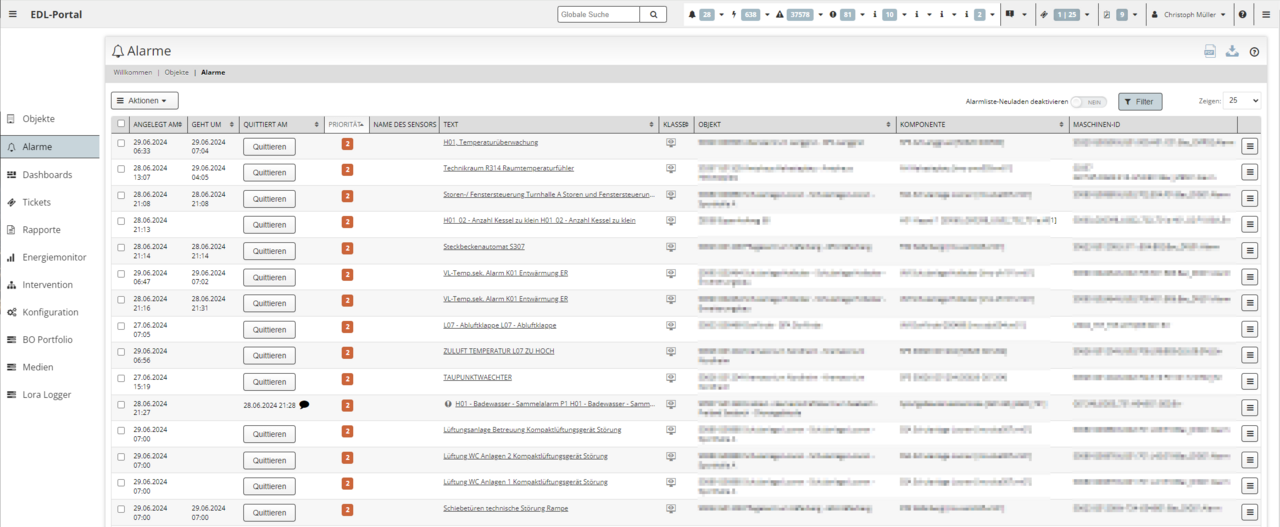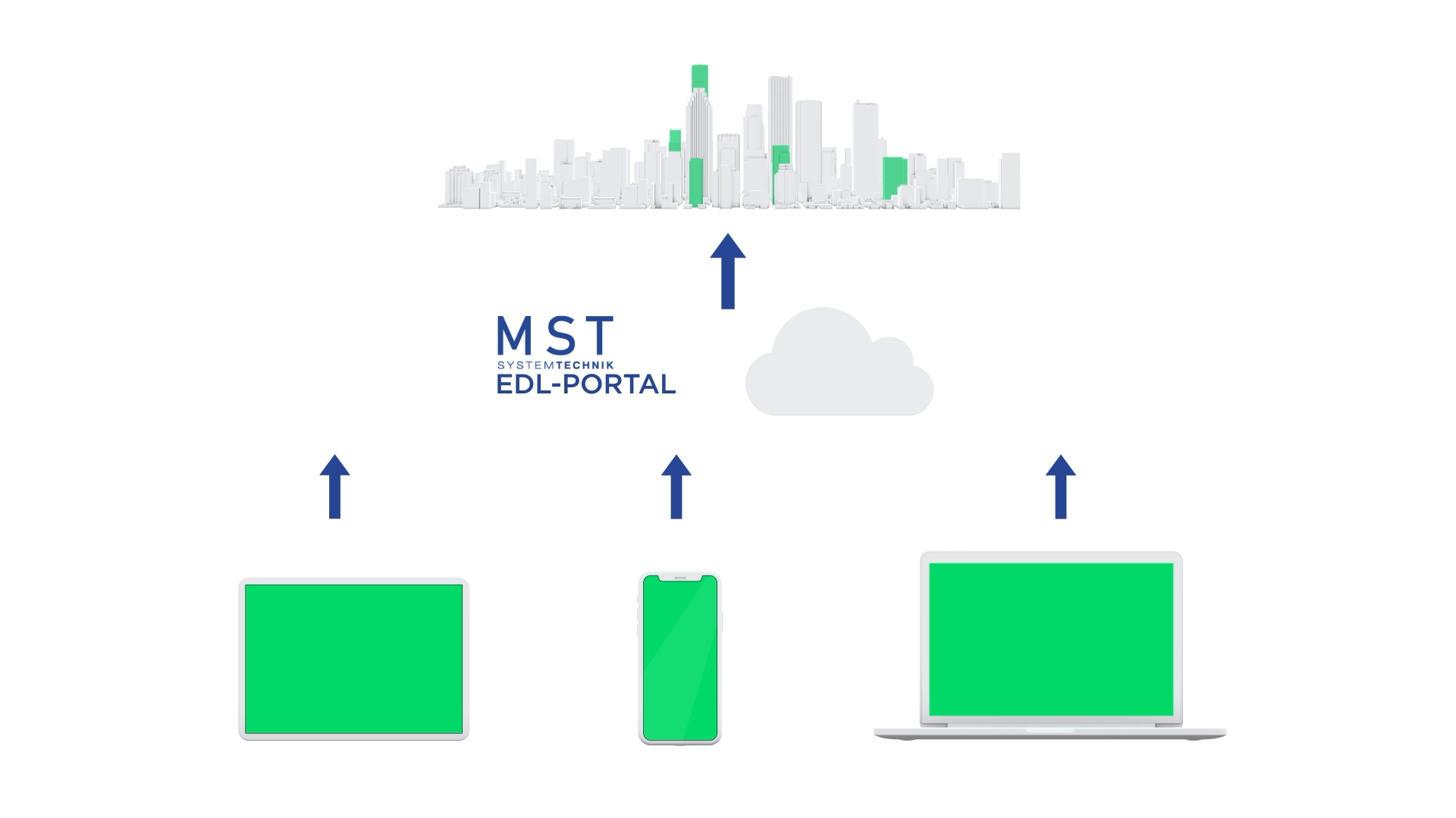
Alarm management
The EDL portal is a powerful tool for promoting sustainability and efficiency in energy management. By integrating various functions and tools, the EDL portal supports operators in optimizing their energy consumption, reducing costs and achieving their sustainability goals.
1. Importance of alarm management
Alarms are used to inform operators of critical conditions or deviations in their systems so that they can react quickly and rectify potential problems. Alarm management in the EDL portal makes it possible to identify and prioritize such alarms in real time and take appropriate action to minimize downtime and ensure operational safety.
2. Main components of alarm management in the EDL portal
2.1. Alarm trigger
- Sensors and measuring devices: Continuously record data and trigger alarms if predefined limit values are exceeded or not reached.
- Software triggers: Monitor the status of systems and installations and automatically generate alarms if required.
2.2. Alarm processing
- Prioritization: Classification of alarms according to their urgency and relevance to ensure that important alarms are prioritized.
- Filtering: Identification and filtering of recurring or irrelevant alarms to reduce false alarms.
2.3. Alarm notification
- Multi-channel notification: Sending alarm notifications via different communication channels such as SMS, email, push notifications or calls.
- Escalation rules: Automated escalation mechanisms ensure that alerts are forwarded to the right people in a timely manner if they are not dealt with within a certain time.
2.4. Alarm history and logging
- Logging: Recording of all alarms and their handling for later analysis and documentation.
- History: Access to past alarms and their handling in order to identify trends and rectify errors.
3. Alarm management functions in the EDL portal
3.1. Real-time monitoring
- Continuous monitoring of data streams and sensors to detect deviations from normal conditions.
- Immediate alerting in the event of critical events or malfunctions to enable rapid reactions.
3.2. Flexible configuration management
- Customizable alarm parameters: Definition of individual alarm limits and criteria depending on the specific requirements and operating conditions.
- User-defined escalation rules: Define escalation levels and procedures based on the urgency and severity of alerts.
3.3. Automated alarm processing
- Intelligent alarm filtering: Automatic identification and filtering of false alarms or unimportant events to avoid overloading users.
- Predefined measures: Automated responses to certain alarms, such as switching off systems that are not required or notifying technicians.
3.4. Comprehensive alarm visualization
- Clear presentation of all current and past alarms in a dashboard for quick analysis and action.
- Visualization of alarm trends and frequencies to identify potential problem areas and take preventive measures.
4. Advantages of alarm management in the EDL portal
4.1. Minimization of downtimes
- The rapid detection and notification of faults allows operators to react quickly and minimize downtimes of their systems.
4.2. Improved operating efficiency
- The proactive monitoring and handling of alarms leads to more efficient operational management and increases the reliability of the systems.
4.3. Risk reduction
- Early alerts enable operators to identify potential risks and take countermeasures in good time to avoid serious damage or safety risks.
4.4. Higher user satisfaction
- The rapid response to alarms and the minimization of faults improve user satisfaction and confidence in the reliability of the systems.
4.5. Cost savings
- The avoidance of downtimes and more efficient operational management lead to considerable cost savings through reduced repair and maintenance costs.
Conclusion
Alarm management within the EDL portal is an essential part of an effective energy management system that helps operators to monitor their systems, identify potential problems at an early stage and act accordingly.overall, alarm management in the EDL portal is a crucial tool for ensuring the smooth and reliable operation of technical building systems. Through continuous monitoring, rapid response to alarms and the implementation of preventative measures, operators can run their systems more efficiently and cost-effectively, which ultimately leads to more sustainable and environmentally friendly operations.

